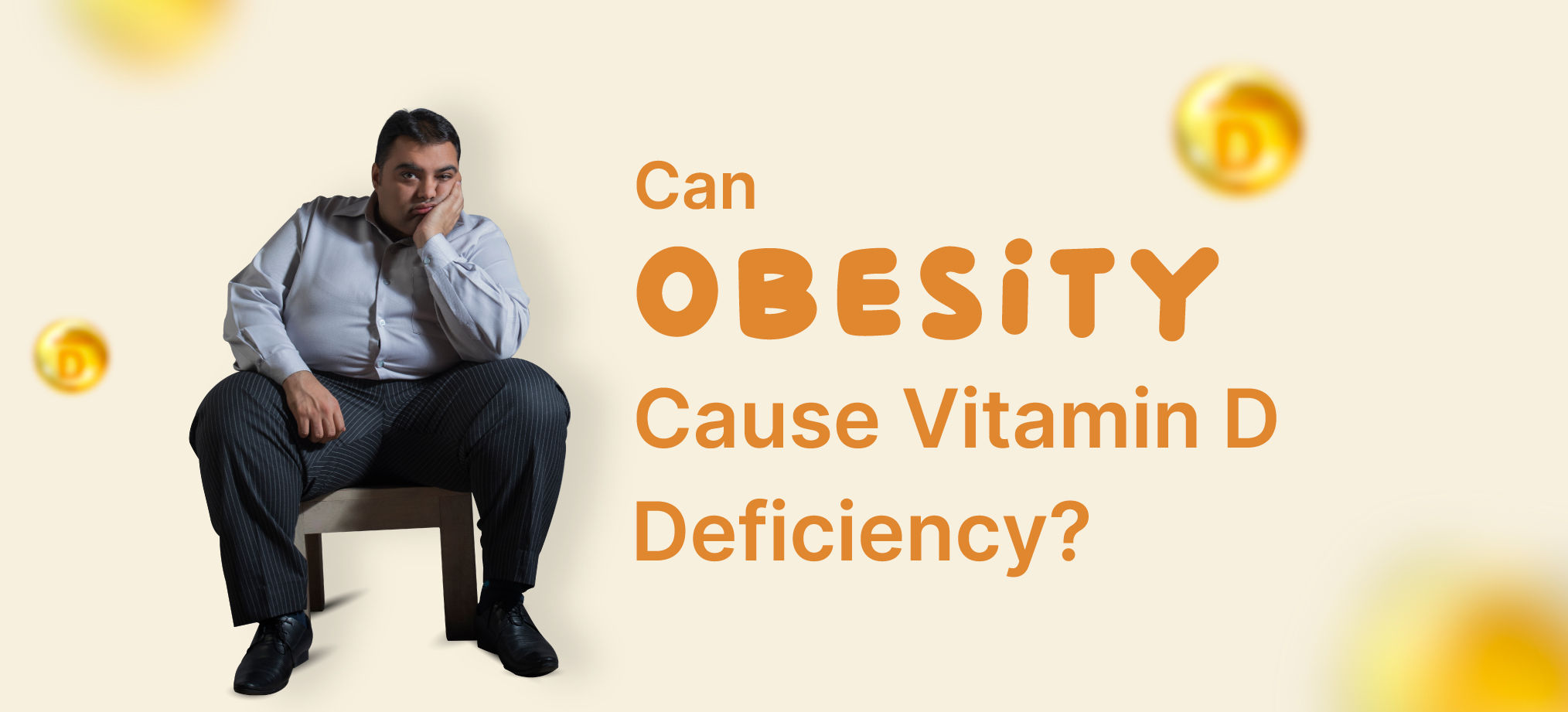General Health
Your Weight Can Influence Vitamin D Absorption In Your Body! Know How
3 min read
By By Apollo 24|7, Published on - 20 February 2023, Updated on - 16 January 2024
Share this article
0
0 like

When it comes to maintaining your overall health, your body weight is often a significant consideration. Not only does it affect your risk of developing chronic diseases like heart disease and stroke but also affects the absorption of vitamins in your body. Recent research has shown that your weight could impact how much vitamin D you are absorbing. Let us look at the connection in this blog.
Why Is Vitamin D Important?
Vitamin D is a nutrient that helps your body absorb calcium and phosphorus, two minerals essential for bone growth and maintenance. It also supports the immune system and can help regulate mood. Though vitamin D can be found in specific foods, it is most abundantly produced when our bodies are exposed to sunlight.
Most studies on vitamin D and weight loss focus on how vitamin D can help people lose weight. One study has shown that people with higher vitamin D levels tend to have lower BMIs (Body Mass Index) than those with lower levels of the vitamin.
Note: The higher the BMI, the lower the absorption of vitamin D in the body.
Furthermore, some scientists also believe that vitamin D might help regulate the hormones that control appetite, which may explain why it can help with weight loss. Studies have gone on to suggest that vitamin D might reduce fat storage and increase fat burning.
Healthy Food Options to Lose Weight
The finest way to lose weight while remaining healthy is to focus on a balanced, nutrient-rich diet.
1. Foods containing vitamin D: Includes egg yolk, fatty fish, mushrooms and fortified dairy products.
2. Minerals: Consumption of minerals like calcium and phosphorus is just as important to lose weight effectively.
3. Vitamins: Vitamin B12 and vitamin C are believed to boost metabolism, while chromium is said to reduce sugar cravings.
Although research has indicated a direct link between vitamin D and weight loss, it is crucial to remember that it is just one piece of the puzzle. Maintaining a healthy weight requires regular physical activity along with portion control.
Consult An Apollo Nutritionist
Frequently Asked Questions
Q. Does body weight affect vitamin D absorption?
Yes, body weight is a factor that affects the absorption of vitamin D. People who are overweight or obese tend to have a lower vitamin D absorption rate.
Q. How can I increase vitamin D absorption?
Vitamin D absorption can be increased by taking vitamin D supplements, getting sunlight exposure and eating foods rich in vitamin D.
Q. What kinds of foods are rich in vitamin D?
Foods high in vitamin D include fatty fish such as salmon and tuna, egg yolks, mushrooms, fortified dairy products and cereals.
Q. How much vitamin D do I need for optimal absorption?
Generally, adults need 600-800 International Units (IU) of vitamin D daily for optimal absorption. However, the dose may vary for pregnant and lactating women.
Q. Are there any risks associated with taking too much vitamin D?
Yes, taking too much vitamin D can lead to an increased risk of bone pain and kidney stones. Therefore, it is essential to consult your healthcare provider before taking any supplements.
Consult An Apollo Nutritionist
Medically reviewed by Dr Madhushree Agarwal
General Health
Consult Top Orthopaedicians
View AllLeave Comment
Recommended for you

General Health
Signs and Symptoms of Vitamin D3 Deficiency: Know What To Look Out For
Vitamin D deficiency is a common condition that can lead to various symptoms and health issues. This article explores the importance of vitamin D, signs of deficiency, risk factors, sources of vitamin D, measurement of vitamin D levels, prevention tips, and potential consequences of untreated deficiency.

General Health
Here’s The Difference Between Adenovirus, H3N2 Virus And COVID-19 Infection
In recent times, India has seen a massive spike in the number of H3N2 virus, adenovirus, and COVID-19 infections. Many people find it difficult to differentiate between these three viral infections. So, here is all you need to know about how to distinguish them based on their symptoms, causes, diagnosis, treatment, and prevention.

General Health
Is Thyroid Dysfunction Reversible?
Hypothyroidism has no permanent cure. However, you can effectively manage it by making some lifestyle modifications and following a prescribed treatment plan. Read on to know more.
Subscribe
Sign up for our free Health Library Daily Newsletter
Get doctor-approved health tips, news, and more.
Visual Stories

Science-backed Home Remedies for Burns and Blisters
Tap to continue exploring
Recommended for you

General Health
Signs and Symptoms of Vitamin D3 Deficiency: Know What To Look Out For
Vitamin D deficiency is a common condition that can lead to various symptoms and health issues. This article explores the importance of vitamin D, signs of deficiency, risk factors, sources of vitamin D, measurement of vitamin D levels, prevention tips, and potential consequences of untreated deficiency.

General Health
Here’s The Difference Between Adenovirus, H3N2 Virus And COVID-19 Infection
In recent times, India has seen a massive spike in the number of H3N2 virus, adenovirus, and COVID-19 infections. Many people find it difficult to differentiate between these three viral infections. So, here is all you need to know about how to distinguish them based on their symptoms, causes, diagnosis, treatment, and prevention.

General Health
Is Thyroid Dysfunction Reversible?
Hypothyroidism has no permanent cure. However, you can effectively manage it by making some lifestyle modifications and following a prescribed treatment plan. Read on to know more.


